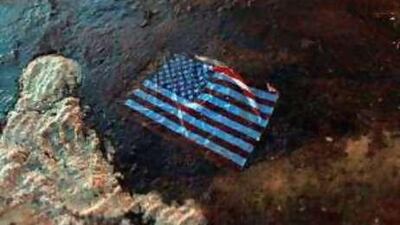Is it possible that the worst is over for BP? There are tentative signs that the oil giant is leaving the "troubled", "beleaguered" phase and entering the "recovery" stage. How it handles the next few weeks will determine whether, and in what form, it will continue to exist as an independent company. The importance of the issue, for shareholders, employees, customers and partners was underlined recently with a reiteration of BP's central role in American and British economic life: the exchequers of those two countries will miss out on US$10 billion (Dh36.72bn) of tax revenue over the next four years as BP deducts the cost of cleaning up the Deepwater Horizon spill from its tax bill. An environmental catastrophe, it seems, is tax-deductible.
What cannot be written off, however, are the fines and punitive damages the US government will impose on BP for its responsibility for the affair. The bill for the clean-up so far is some $3.5bn, and BP has pledged to put $20bn in escrow to meet environmental costs and claims. That's a huge chunk of BP's capital committed to paying for the disaster, and its significance for the company's finances should not be underestimated. But there is a growing feeling that $20bn might just turn out to be enough. The wilder estimates of a $60bn price tag are beginning to look a little too pessimistic.
There also seems to have been a change of attitude, or at least of rhetoric, in the US. The Obama administration is pulling back from some of the more bloodthirsty threats to BP that characterised the early days of the disaster in April and May. This has coincided with the elevation of Bob Dudley, the Mississippi-raised executive now in charge of the fallout from the Deepwater disaster. Mr Dudley speaks a language the Americans understand, unlike Tony Hayward, the chief executive who for a time became the most hated man in the US.
Still open to debate is whether Mr Dudley's promotion is the only reason for the softening of the US line or Barack Obama is becoming increasingly sensitive to general criticisms from big business. Whatever the reason, the pressure of the US boot on BP's neck has been significantly reduced. There is further good news on the technical front. Watching grainy videos of a submarine robot fitting a new cap to the gushing well at a depth of 1,500 metres only underlines the technological problems BP faces as it tries to plug the leak, but it's so far, so good for the company, and the coastline of the Gulf of Mexico. If the cap holds until the drilling of relief wells has been completed next month, that will be another bonus for BP.
But the main reason for a new-found optimism at BP is the recovery in the share price. In New York, where most of the serious activity in BP shares has been conducted, the shares were trading at nearly $37 yesterday, a rise of 37 per cent since the low of $26.80 they hit near the end of June. Some of that rise is due to the improving climate in the US described above, but most is because of speculation about a possible takeover of the company, and the investor-friendly approach the company adopted to deal with that threat.
It is by no means certain that a straightforward hostile bid was ever on the cards. ExxonMobil, Royal Dutch Shell and PetroChina - all suggested as possible bidders - would have been deterred by the unquantifiable nature of the damage sustained in the US. They would also have been put off by the highly political attention an opportunistic and unwelcome bid would have attracted. BP is deeply embedded in the political structure of the UK, the US and Russia, and a sudden change of ownership might have radical implications in those key markets.
The British could block such a bid on grounds of national interest, while the Americans and Russians might take the opportunity to grab assets in their domestic markets. A would-be bidder would find itself involved in a gigantic game of political and corporate intrigue. But the prospect of a significant stake in BP being bought by a friendly strategic shareholder is a different matter. A significant element of the share-price rise over the past three weeks came when The National revealed that the company was wooing Middle East investors with a view to adding them to the BP share register.
Mr Hayward's subsequent trip to Abu Dhabi reinforced the equity recovery. Prospective shareholders from Libya and Kuwait were also suggested. No news has yet emerged that any of these potential "strategic" partners has actually bought more shares, but market experts believe it will not be long before one of them hits the 3 per cent level where its stake has to be declared. News yesterday that Abu Dhabi was considering taking a stake is confirmation of that.
As long as the news from the US remains positive and the air of crisis evaporates, the rise in the share price will surely continue. Any other strategic investors have a dwindling opportunity to buy into BP on the cheap. @Email:fkane@thenational.ae

